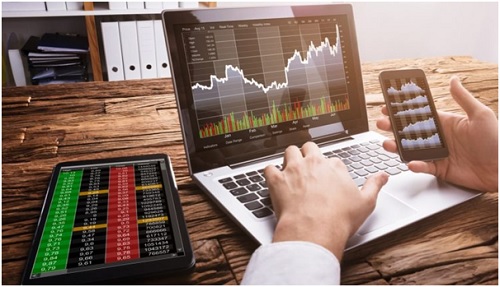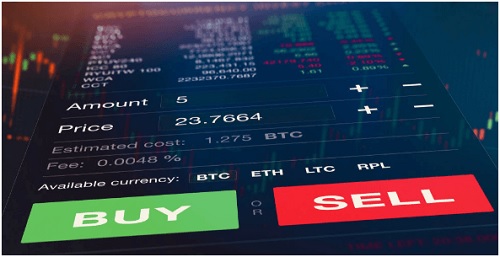Affordable Online Trading Options in South Africa
Posted by Tony on Mon 27th Jul, 2020 - tori.ngToday, residents of South Africa may easily connect to global markets. Modern technology allows consumers to not just spend but also earn money from the comfort of their homes. It is estimated that over 15 million people engage in internet-assisted trading across the world. Now, the country is part of this vibrant community, along with Nigeria. But what opportunities does the average client have?
Due to the recent change of regulations in Europe, many international brokerage firms are tailoring their services to the African population. Locals have access to the most well-established and famous brands, which provide the software, knowledge, and the support needed to make trading lucrative. From currencies to complex derivatives, here is an overview of common offerings.

Currency Trading
Forex, or the foreign exchange, has been around for decades. Previously, it was only accessible to large institutions like banks, hedge funds, and corporations. The retail dimension emerged in the 1990s. Since then, any individual can test their foresight in the global market through digital platforms.
Today, entrance is affordable to anyone. Residents of South Africa have access to so-called ‘cent accounts’ where the initial deposit is just $10. One the one hand, this means Forex is reachable for clients with any budget. On the other hand, it is an intermediate step between risk-free demo trading and large-volume trades.
Another advantage is leverage, which is how a broker like FXTM can boost your purchasing power. Even with $10 in your account, you can open positions for larger volumes. The ratio between your own funds and those provided by the broker may vary between 1:1,000 and 1:25. For instance, if you trade with a deposit of $100 and leverage of 1:100, you could open positions for $10,000 in total.
The Logic of Currency Trades
In essence, traders bet on whether the value of a given currency will fall or rise in the future. Almost all national currencies are accepted, and these are always valued against one another. These pairs may be classified as Major, Minor, or Exotic based on the monetary systems they represent. Some of the most popular pairings include EUR/USD, GBP/USD, and USD/JPY. They always follow the formula ‘base currency’/’counter currency’ (aka ‘quote currency).
For instance, the price for the USD/ZAR pair shows how much South African rand one US dollar is worth. There are two interconnected prices at the same time, and these are always in flux. The Ask value is applied to buyers of USD for ZAR, while the Bid is valid for the sellers. The latter is always slightly higher than the former, and the difference is known as ‘spread’. This is a source of revenue for the broker.
Since any exchange rate is ever-changing, traders predict their movement and open positions to sell or buy the base currency. For instance, if you believe that the USD will appreciate (gain value) against the ZAR, you can buy more US dollars before the rise. In the opposite situation, you would sell your US dollars before they became cheaper. Thus, both uptrends and downtrends can prove profitable.
Other Options
Brokers offer precious metals trading that involves speculation on gold and silver. This may also be done through Contracts for Difference, or CFDs, which are linked to different underlying assets. In each case, the derivative is a purely virtual instrument and does not require ownership of the physical resource. When trading CFDs, users follow logic similar to forex: they speculate on price movements, aiming to benefit from the rises and falls.
As traders gain experience, they add more instruments to their portfolios. Usually, these are traded using the same software. The more diverse your selection - the lower the overall risk. The range of available tools includes:
- stocks;
- spot metals (e.g., Gold against the British Pound (XAUGBP);
- CFDs on stocks;
- CFDs on commodities;
- CFDs on market indices;
- CFDs on cryptocurrencies;
- binary options, etc.

How to Get Started
Whichever instrument you opt for, the first step is finding a broker. This company acts as an intermediary between you and the global market. It registers your account and provides the necessary software tools. Moreover, all subsequent financial transactions (deposits and withdrawals) will also be processed by the company. Hence, it is vital to choose a trustworthy operator for truly lucrative and fair online trading.
In South Africa, the field is fairly regulated. In Nigeria, the government is only developing its control measures for the field. Thus, do not trust the hype - look for well-established brands with years of successful operation. Although home-grown companies exist, they can hardly provide a competitive range of opportunities. Global names, aside from official licensing and registration, are subject to supervision by credible entities (such as CySEC).


















































